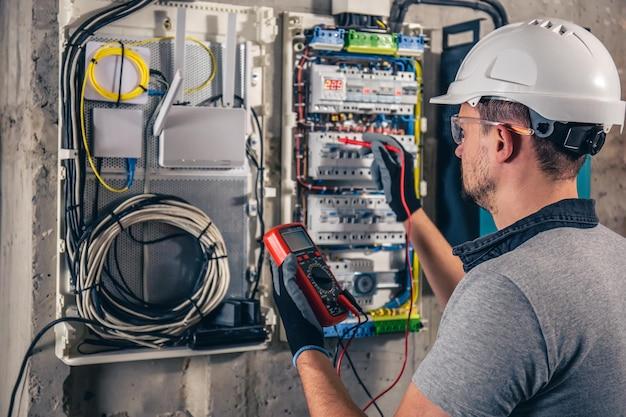Welcome to my blog, where we dive deep into the world of engineering to answer the age-old question: which engineering field is better, EEE or ECE? If you’re considering a career in engineering, the choice between Electrical and Electronics Engineering (EEE) and Electronics and Communication Engineering (ECE) can be tough. But fear not, as I’m here to shed some light on this topic and help you make an informed decision.
As technology continues to advance at a rapid pace, both EEE and ECE play crucial roles in shaping our modern world. From smartphones to smart grids, these engineering disciplines are at the core of innovation. But which one should you choose? In this blog post, we’ll compare the two fields based on various factors like scope, difficulty level, and career prospects to help you determine which path may be the right fit for you.
So, whether you’re curious about the differences between EEE and ECE, wondering about the scope of ECE, or simply trying to figure out which one is easier, you’ve come to the right place. Let’s embark on this exploration of the battle between EEE and ECE, and equip you with the knowledge to navigate the ever-evolving world of engineering.

Introduction
Engineering students often find themselves faced with difficult decisions when it comes to choosing their specialization. One common dilemma is deciding between Electrical and Electronics Engineering (EEE) and Electronics and Communication Engineering (ECE). Both fields offer exciting career opportunities and are in high demand in today’s technology-driven world. But which engineering is better, EEE or ECE? Let’s dive into the comparison and find out!
EEE vs ECE: The Ultimate Showdown
Job Prospects
When it comes to job prospects, both EEE and ECE engineers have promising futures. ECE engineers can work in various industries, such as telecommunication, semiconductor, and information technology, where they can develop cutting-edge technologies that revolutionize the way we communicate. On the other hand, EEE engineers can explore opportunities in power generation, renewable energy, automation, and robotics, contributing to a sustainable and efficient future.
Coursework
In terms of coursework, EEE focuses more on electrical systems, control systems, and power electronics. ECE, on the other hand, delves into communication systems, signal processing, and digital electronics. So, if you’re someone who loves playing with circuits, EEE might be the perfect fit for you. But if you’re passionate about wireless communication and have a knack for coding, ECE will be right up your alley.
Skill Set
Both EEE and ECE engineers require a strong foundation in mathematics and physics. However, the skill sets they develop differ slightly. EEE engineers gain expertise in power systems, electrical machines, and control systems, making them masters of wired technology. Meanwhile, ECE engineers become proficient in communication systems, networking, and digital signal processing, making them wizards of wireless technology.
Popularity Contest
In the battle of popularity, it’s tough to pick a clear winner. EEE has been around for a longer time and has a strong establishment in various industries. However, ECE has gained significant traction due to the boom in wireless communication technologies. So, if you’re concerned about what your peers might think, rest assured that both fields enjoy their fair share of popularity.
Salary Showdown
When it comes to salaries, both EEE and ECE engineers can earn attractive pay packages. Though it ultimately depends on various factors, such as your experience, job position, and location, it’s safe to say that both fields offer competitive remuneration. So, whether you’re an EEE or ECE engineer, you can expect a comfortable lifestyle with plenty of financial stability.
Flexibility Factor
Flexibility is another aspect to consider. EEE engineers can branch out into fields such as power management, automation, and embedded systems. On the other hand, ECE engineers can explore opportunities in wireless communication, signal processing, and networking. So, it ultimately depends on your interests and where you see yourself contributing to technological advancements.
Conclusion – The Verdict
In the battle between EEE and ECE, there isn’t a definitive answer as to which engineering field is better. Both EEE and ECE have their unique strengths and career opportunities. The key is to choose based on your interests, passion, and long-term goals. So, whether you choose to go down the wired path of EEE or take the wireless route of ECE, rest assured that both fields offer exciting and fulfilling careers. It’s time to make your choice and embark on a fantastic engineering journey!
Remember, regardless of which engineering field you choose, the important thing is to embrace it with dedication, enthusiasm, and a good sense of humor. Because let’s face it, no matter how many resistors or capacitors you deal with, a little laughter can always spark some extra voltage in your life!

FAQ: Which Engineering is Better, EEE or ECE?
Is Computer Science Engineering Better Than Electronics and Communication Engineering
When it comes to choosing between Computer Science Engineering (CSE) and Electronics and Communication Engineering (ECE), it’s important to consider your interests and career goals. While both fields offer promising opportunities, they have distinct focuses.
CSE: Unleash the Power of Code
Computer Science Engineering (CSE) is like the conductor of the technology symphony. It delves into the world of algorithms, software development, artificial intelligence, and data science. If you have a passion for coding and want to create groundbreaking software and applications, CSE might just be your jam. With the digital revolution in full swing, CSE plays a key role in shaping the future.
ECE: Where Electronics Meets Communication
On the other hand, Electronics and Communication Engineering (ECE) is like the magician behind the curtain, making our modern-day wonders possible. ECE deals with electronics, telecommunications, wireless communication, and signal processing. If you find yourself captivated by electronic gadgets, fascinated by wireless networks, or intrigued by the transmission of information, then ECE might just be your calling.
Which Engineering is Better, EEE or ECE
Comparing Electrical and Electronics Engineering (EEE) with Electronics and Communication Engineering (ECE) is like comparing apples to oranges. Both fields have their unique flavors and offer exciting opportunities for those with the right taste buds.
EEE: The Power Behind the Scenes
Electrical and Electronics Engineering (EEE) is the backbone of our modern society. It deals with power systems, electrical machines, control systems, and renewable energy. If you’re drawn to the inner workings of power generation and distribution, or if you have a spark for sustainable energy solutions, EEE could be the field where you make a powerful impact.
ECE: The Language of Communication
If you’re more inclined towards communication systems, wireless networks, and cutting-edge technologies, Electronics and Communication Engineering (ECE) might be your cup of tea. ECE focuses on electronic devices, circuits, communication systems, and signal processing. It offers thrilling possibilities for those who want to shape the future of communication and technology.
Does Electronics and Communication Engineering Have Scope
Absolutely! Electronics and Communication Engineering (ECE) has an ocean of opportunities waiting to be explored. In today’s interconnected world, where communication is at the heart of technological advancements, ECE professionals are in high demand.
Whether it’s designing the next generation of smartphones, developing efficient networking systems, or creating innovative IoT devices, ECE graduates are equipped with the skills required to thrive in various industries. From telecommunications to aerospace, healthcare to entertainment, ECE professionals can find rewarding careers in a wide range of sectors.
How Challenging is Electronics and Communication Engineering
Embarking upon the journey of Electronics and Communication Engineering (ECE) can be compared to riding a rollercoaster of excitement and challenges. Like any engineering discipline, ECE requires dedication, perseverance, and a knack for problem-solving.
From complex circuit theories to mastering signal processing techniques, ECE coursework can be demanding. But fear not! With the right mindset, support, and a sprinkle of determination, you can conquer the challenges and unleash your potential.
Which is Easier, Electrical and Electronics Engineering or Electronics and Communication Engineering
It’s hard to determine which engineering field is inherently easier, as difficulty can vary depending on an individual’s interests and strengths. While Electrical and Electronics Engineering (EEE) leans more towards power systems and renewable energy, Electronics and Communication Engineering (ECE) delves deeper into communication systems and wireless technologies.
Ultimately, what matters most is finding an engineering field that aligns with your passion and skill set. So rather than seeking the easier path, focus on exploring the field that truly ignites your curiosity and motivates you to excel.
Is Electronics and Communication Engineering a Good Career Choice
Absolutely! Electronics and Communication Engineering (ECE) sets the stage for an exciting and fulfilling career. With its wide-spread applications in various industries, ECE offers endless possibilities for growth and innovation.
Whether you dream of developing cutting-edge communication systems, revolutionizing healthcare technologies, or pushing the boundaries of artificial intelligence, ECE can be your stepping stone towards a rewarding career. Embrace the ever-evolving world of technology and let your skills in ECE take you places.
So, whether you choose EEE or ECE, CSE or some other engineering field, remember that your passion, dedication, and willingness to learn will pave the way to success in your chosen career path. Embrace the challenges, celebrate the victories, and let your engineering journey unfold with endless possibilities!
